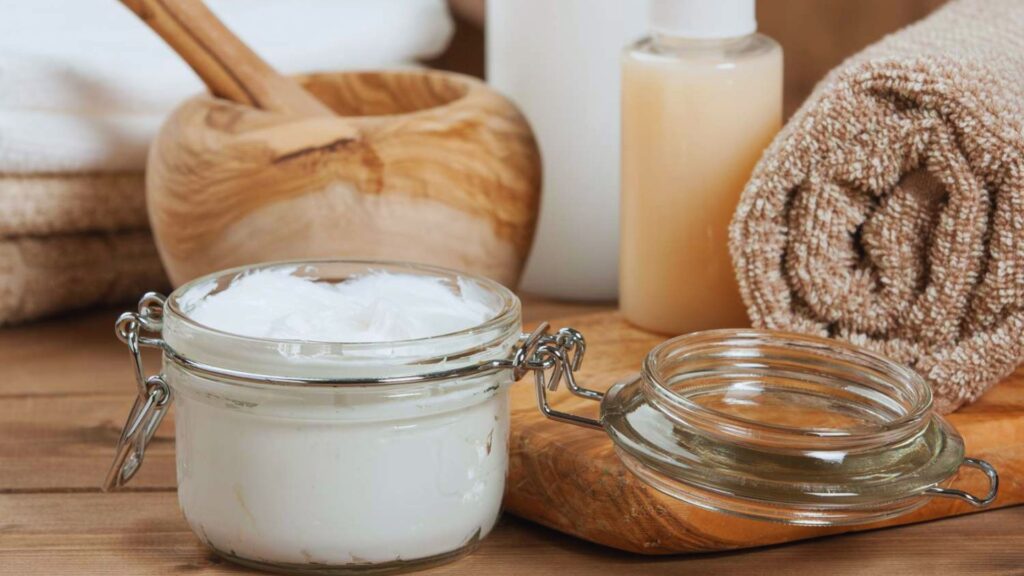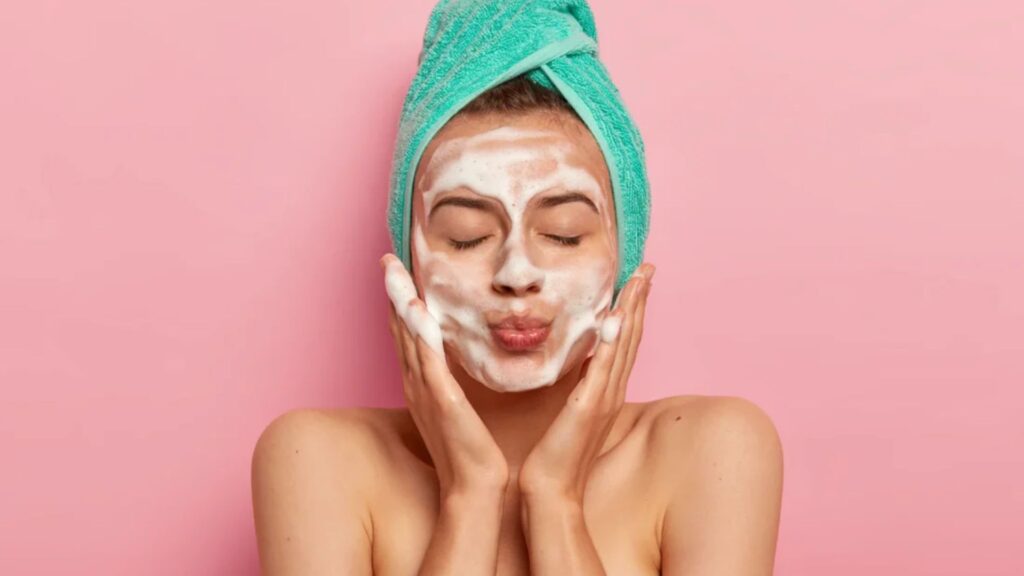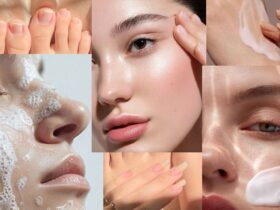Maintaining well-moisturized skin is essential for a healthy and radiant complexion. However, many commercial skincare products are filled with chemicals and synthetic ingredients that can do more harm than good in the long run. If you’re looking for a more natural, organic approach to skincare, there are plenty of ways to keep your skin hydrated without relying on these harsh products. By incorporating organic ingredients and lifestyle habits, you can ensure your skin stays soft, supple, and moisturized throughout the day.
In this blog post, we’ll discuss how to keep your skin organically moisturized, offering 10 top tips that will keep your skin glowing and hydrated without the need for synthetic moisturizers. Let’s dive into the natural world of skincare!
1. Hydrate From The Inside Out
The foundation of healthy, moisturized skin starts from within. Drinking enough water is crucial for maintaining your skin’s moisture levels. Water helps flush out toxins, supports your skin’s elasticity, and keeps it looking plump and youthful. Aim to drink at least 8 glasses of water a day, and if possible, add in some hydrating foods like cucumbers, watermelon, and oranges. These fruits are packed with water and nutrients that support overall skin health.
For an extra boost, herbal teas such as chamomile or green tea can provide antioxidant support and hydration. Keep a water bottle handy throughout the day to ensure your skin stays hydrated from the inside out.
2. Use Natural Oils as Moisturizers
Nature provides us with an abundance of natural oils that work wonders for hydrating the skin. These oils penetrate the skin deeply and lock in moisture without clogging your pores or leaving a greasy residue.
- Coconut oil: Rich in fatty acids, coconut oil is excellent for dry and sensitive skin.
- Jojoba oil: This oil closely mimics the skin’s natural sebum, making it ideal for all skin types, including oily or acne-prone skin.
- Argan oil: Packed with vitamin E and essential fatty acids, argan oil is a powerful moisturizer for dry or aging skin.
- Rosehip oil: Known for its skin-rejuvenating properties, rosehip oil hydrates while also supporting skin regeneration and repair.
To use, apply a few drops of your chosen oil onto damp skin after cleansing to help seal in moisture.

3. Moisturize Immediately After Showering
Timing is crucial when it comes to moisturizing your skin. The best time to apply a moisturizer is right after you step out of the shower when your skin is still damp. At this stage, your skin is most absorbent, and applying natural oils or organic moisturizers will help lock in the moisture you’ve just gained from your shower.
Gently pat your skin dry with a towel (don’t rub!), and then apply your chosen moisturizer. This simple step can make a big difference in how long your skin stays hydrated throughout the day.
4. Incorporate Aloe Vera Gel
Aloe vera is a well-known natural hydrator with healing properties. It’s incredibly soothing for dry or irritated skin and is often used to treat sunburns. However, aloe vera is also an excellent daily moisturizer for all skin types. It helps replenish moisture, soothe inflammation, and provide a light barrier to prevent water loss from the skin.
You can use pure aloe vera gel directly from the plant, or purchase organic aloe vera gel from a trusted source. Apply a thin layer to your face or body, and let it absorb for smooth, hydrated skin.
5. Eat Foods Rich in Healthy Fats
Just as staying hydrated helps moisturize your skin from the inside out, so does consuming foods rich in healthy fats. Omega-3 fatty acids, found in foods like flaxseeds, chia seeds, walnuts, and fatty fish, support the skin’s natural lipid barrier. This barrier is essential for keeping moisture locked in and preventing dryness.
Additionally, avocados, olive oil, and almonds are packed with vitamin E, an antioxidant that helps protect your skin’s moisture balance and supports overall skin health.
6. Use a Humidifier
Environmental factors play a significant role in the health and moisture levels of your skin. If you live in a dry climate or frequently spend time in air-conditioned or heated environments, the lack of moisture in the air can quickly dry out your skin.
A simple solution is to use a humidifier in your home or office. This device adds moisture to the air, which in turn helps your skin stay hydrated and soft. Consider placing a small humidifier in your bedroom to keep the air moist while you sleep.
7. Avoid Harsh Cleansers
One of the biggest culprits for dry skin is the use of harsh, chemical-laden cleansers. Many conventional soaps and facial washes strip the skin of its natural oils, leaving it dry and vulnerable. Instead, opt for gentle, organic cleansers that maintain your skin’s natural pH balance while removing impurities.
Look for ingredients like aloe vera, chamomile, and oatmeal, which gently cleanse while also hydrating and soothing the skin. This will ensure your skin stays clean without compromising its moisture barrier.

8. Exfoliate Gently with Natural Ingredients
Exfoliating your skin helps remove dead skin cells that can block your skin’s ability to absorb moisture. However, over-exfoliating or using harsh scrubs can do more harm than good, leading to irritation and dryness. The key is to exfoliate gently with natural ingredients.
One of the best natural exfoliants is oatmeal. Ground oats mixed with a little honey or yogurt can create a gentle scrub that removes dead skin cells without irritating your skin. Brown sugar is another excellent natural exfoliant that helps slough off dead skin while leaving your skin feeling soft and hydrated.
Exfoliate 1-2 times a week to keep your skin smooth and able to absorb moisture more effectively.
9. Protect Your Skin From the Sun
While sunlight provides essential vitamin D, too much exposure can lead to dryness, premature aging, and damage to the skin. Protecting your skin from UV rays is crucial for maintaining its moisture levels and overall health.
Choose an organic sunscreen made with natural ingredients like zinc oxide, which provides a physical barrier against harmful rays without irritating your skin. Additionally, wearing protective clothing like wide-brimmed hats and sunglasses can help shield your skin from excessive sun exposure.
10. Create a DIY Moisturizing Mask
If your skin needs a hydration boost, a DIY moisturizing mask made from natural ingredients can work wonders. You can create a hydrating face or body mask with items from your kitchen!
Here’s a simple recipe:
- 1 tablespoon of honey: Honey is a natural humectant that draws moisture into the skin.
- 1 tablespoon of mashed avocado: Avocado is rich in healthy fats and vitamins that nourish and moisturize.
- 1 tablespoon of yogurt: Yogurt contains lactic acid that gently exfoliates while providing hydration.
Mix these ingredients together and apply the mask to your skin. Leave it on for 15-20 minutes, then rinse off with warm water for soft, hydrated skin.
Final Thoughts
Keeping your skin organically moisturized doesn’t require expensive products filled with chemicals. By adopting these natural tips into your skincare routine, you can maintain soft, healthy, and hydrated skin all day long. Whether you’re hydrating from within, using natural oils, or protecting your skin from environmental stressors, these organic methods will help you achieve glowing skin naturally. Give them a try and watch your skin transform!





















Leave a Reply